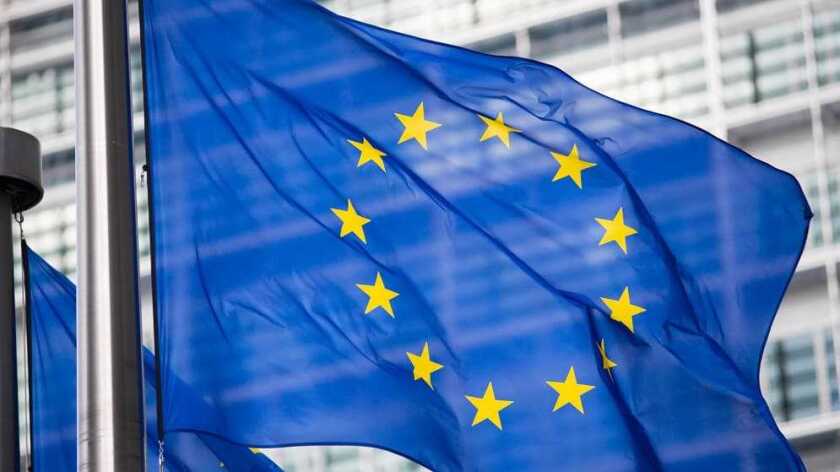The long-awaited European Commission report from Mario Draghi suggests consolidation would improve the competitiveness of the EU’s telecoms sector.
The former European Central Bank President penned a lengthy report that described the EU telecoms market as being highly fragmented compared to the US and China — which has reduced industry profitability and investment levels.
Draghi’s report calls for a radical reforming of EU regulations and views on competition, arguing that current rules have disincentivized consolidation, resulting in multiple smaller players in each market.
Subscribe today for free
“The EU has dozens of telecom players serving around 450 million consumers, compared with a handful in the US and China, respectively,” Draghi’s report reads.
“EU companies lack the scale required to provide citizens with ubiquitous access to fibre and 5G broadband and to equip businesses with advanced platforms for innovation.”
Draghi’s report suggests that EU’s telecoms competition has led to significant infrastructure gaps across the continent, citing figures that only 56% of households have access to fibre-to-the-premises networks and 5G population coverage lags behind the US and China at 81% compared to over 95%.
The report also warned of challenges in the telecom equipment and software sector, claiming there’s fierce competition from Chinese firms and a concerning lack of EU players in device software, a market dominated by US tech giants.
A NEW EU TELECOMS ACT
In February, reports suggested that the EU was considering relaxing merger rules for telcos, a move that Draghi supports in his publication.
To improve the sector’s competition, Draghi’s report suggests EU lawmakers should adopt a new EU Telecoms Act.
The proposed regulation would set a new more strategic stance on telecommunication services, ultimately aiming to boost the bloc’s fledgling sector to better compete with China and the US.
Draghi’s report recommends any new Telecoms Act should include:
Instructing regulations to assess telecoms mergers on an EU level — not a national level.
An introduction of a “same rules for same services” principle across the EU that would remove regulatory arbitrage across providers from adjacent sub-sectors providing similar services.
Increase the weight of innovation and investment commitments to clear mergers.
Speeding up assessments of price-based competition post-mergers.
Favouring EU-based telecom equipment and software providers in trade negotiations and policies with third countries.
Incentivise the deployment of new infrastructures by defining cut-off dates for older technologies.
The report recommended that the EU should favour cross-border mergers and operations with regulations, and reduce country-level ex-ante rules that discourage investments and risk-taking.
Draghi also called for a revision of EU-wide spectrum licensing rules, with increased harmonisation required to “create scale benefits and incentivise the consolidation of continental digital networks.
“The declining profitability of the telecom sector now may represent a risk for industrial companies in Europe, in a phase when state of the art infrastructure is required to digitise manufacturing, supply and distribution chains,” the report reads.
A MIXED REACTION
Draghi’s report was met with a mixed reaction from trade bodies and big-name players.
Some, like Ericsson, saw it as a positive.
“The Draghi report is a timely call to action, bringing into sharp focus the challenges Europe is facing and the pivotal role connectivity will play to address its competitiveness gap, as an enabler of innovation and exponential technologies like AI,” said Jenny Lindqvist, SVP and head of Ericsson Europe and Latin America.
“The report rightly emphasizes the need for facilitating consolidation in the telecoms sector and the harmonisation of spectrum pricing best practice[s] across the EU. Both are key factors in realizing a true Single Market for telecom and to incentivize infrastructure deployment in order to close the productivity gap.
“Now is the time to act to tackle the structural problems in the European telecom market and put technology leadership top of the European agenda.”
CEOs from major companies, including Nokia, SAP, Siemens, Renault Group, Schneider Electric, and Deutsche Bank, joined Ericsson's assessment and signed an open letter expressing support.
“Being home to some of the world’s top telecom manufacturers, Europe has been a major force in advancing network innovation,” the letter reads. “However, more support is needed if we are to continue to build European technology leadership in trusted and advanced connectivity.
“Europe’s industrial base is powerful, but it requires high levels of investment and adequate policy conditions so that each of its parts can grow, innovate and stay competitive at the global level. Connectivity is no exception. As European industry, we need increased collaboration and investment in trusted, secure, resilient, and high-quality connectivity, as well as in computing infrastructure.
“This is why we, as leading CEOs, believe that it is urgent to take action now and shape the future of European digital infrastructure. European competitiveness is at stake.”
An unexpected supporter of the report was one Elon Musk, who described Draghi’s assessment as “accurate.”
“A thorough review of EU regulations to eliminate unnecessary rules and streamline activity in Europe would revitalize growth and strengthen competitiveness,” Musk said via X (Twitter).
Mario Draghi’s critique is accurate. A thorough review of EU regulations to eliminate unnecessary rules and streamline activity in Europe would revitalize growth and strengthen competitiveness. Things should be default legal, rather than default illegal. https://t.co/NQQom5OYIS
— Elon Musk (@elonmusk) September 9, 2024
However, some trade bodies were not happy with the assessment. The European Competitive Telecommunications Association (ECTA) describing the recommendations as “a one-sided approach on telecoms” that acts in the interest of a handful of larger players.
“We fear that the Draghi report is based on a flawed evaluation of the European model and therefore entails the risk of coming at a high price for consumers, enterprises and public administrations and, furthermore, risks putting the EU’s competitiveness in the digital realm in jeopardy,” said Luc Hindryckx, Director General of ECTA.
“Reducing competition always comes with a high price and does not foster innovation or investments. Let’s not forget that the so-called big-tech companies are not the fruit of incumbents and all started from zero.”
ANALYST VIEWS
The Draghi report’s argument that consolidating the telecoms sector “makes sense to make easier, but the idea that there can be a single EU market and that it should move to a post-merger competition review is heavyhanded,” Dean Bubley, founder and director of Disruptive Analysis, told Capacity.
“There seems to be an institutional belief in the EU that larger equals better, but then when you look at the largest telcos they have often been the slowest on FTTP and lack agility and R&D competence.
“There's clearly a hope in Brussels that somehow this will lead to DT, Telefonica, Orange, VF etc. somehow morphing into the Amazons and Microsofts and Alphabets of the future. It's nonsense.”
Sarah McBride, a principal analyst for regulation at analyst firm Omdia, said she has reservations about the recommendation to assess mergers at the EU level.
“Even though in recent times, the European Commission has clearly been taking a more favourable stance towards mergers at a country level and has stated that there is ‘no magic number of operators within a national market,’ moving to EU level assessments would be quite a leap and a big change in the interpretation of the existing rules by the Commission,” McBride told Capacity.
“The suggestion from the report is that in future the Commission should just assess whether a proposed merger stifles competition at an EU level, even if the market is mainly national, and then give the go-ahead as long as the market share across the entire single market is less than 40%, even if a merged entity would hold a near monopoly position at a country level, will certainly prove controversial among national regulators, consumer groups and smaller national telcos, as it raises considerable competition concerns at a country level. After all, the telecoms sector is still an intrinsically local sector.”
For the EU telecoms sector to thrive, the regulatory framework within Europe must be re-engineered to foster economic investment by driving scale across the continent, Laureen R. Cook, CEO and executive TMTS adviser at Extelcon explained to Capacity.
“In order to raise an inflow of capital, a reshaping of the regulatory landscape within EU is required, as legacy telecoms operators have invested strictly within the confines of their specific geographic license requirements,” Cook said.
“While economies of scale have been partially achieved with the larger network operators by cross-border acquisitions within the EU, both fixed and wireless, further economics scale are not currently being realized when it comes 5G and fibre networks, as big tech is not currently paying their fair share under the current EU Regulatory structure.
“Additionally, in order to defend and protect the EU’s boarders at home and abroad, the harmonization of spectrum, cybersecurity developments, and lawful interception guidelines must be aligned across all EU member countries. While Draghi’s report to the EU addresses these topics, there will need to be a meeting of minds from likes of ECTA, ETNO, the GSMA, and the European Commission, with concessions made by all parties, in order develop an agile regulatory framework which will foster investment in digital infrastructure throughout the EU going forward.”
RELATED STORIES
EU ready to ease telco merger rules
UK, USA and EU sign first international treaty on AI ethics.
Does the EU's approach to regulating data centres make sense?






